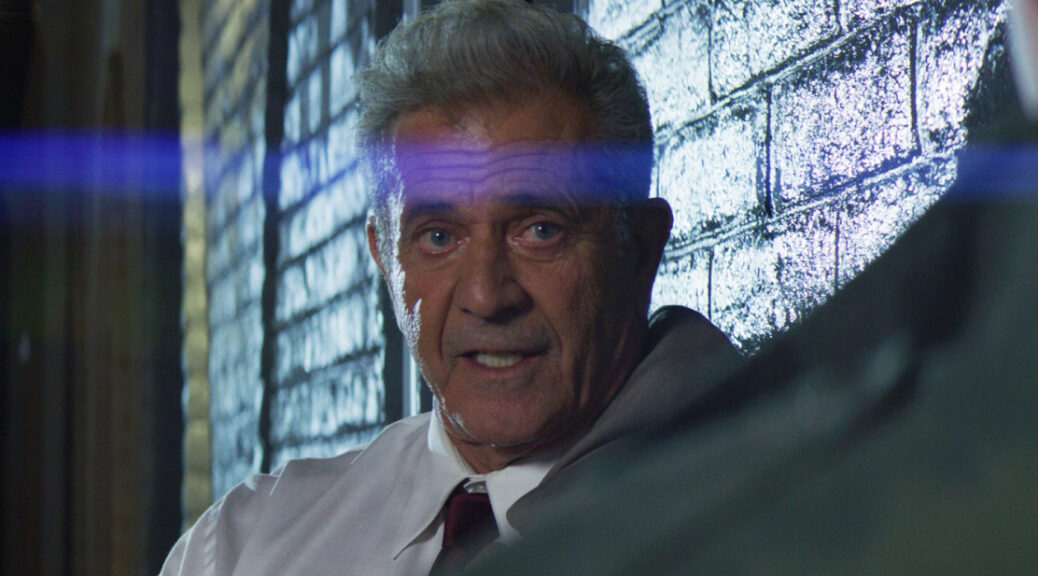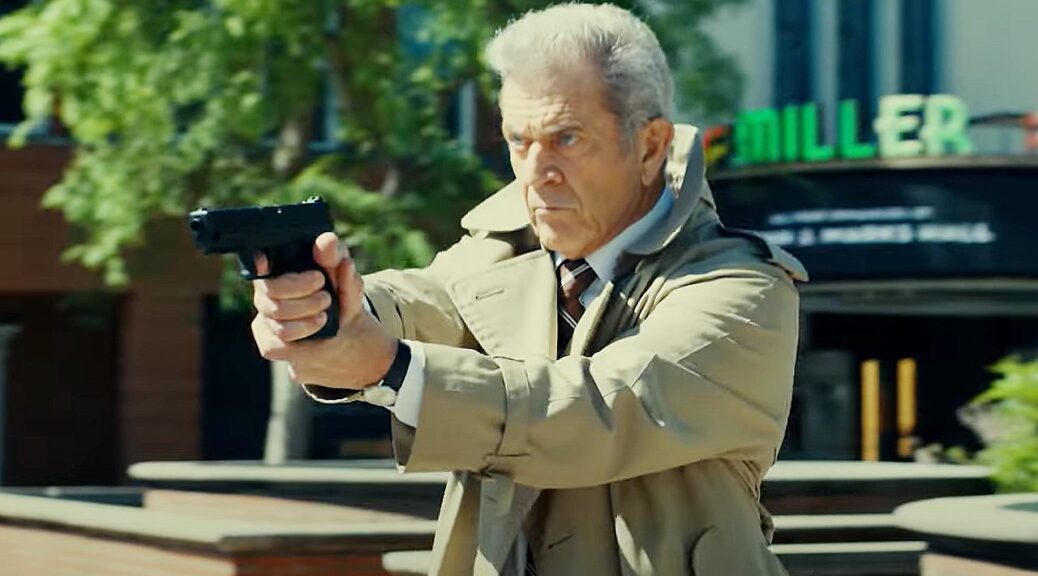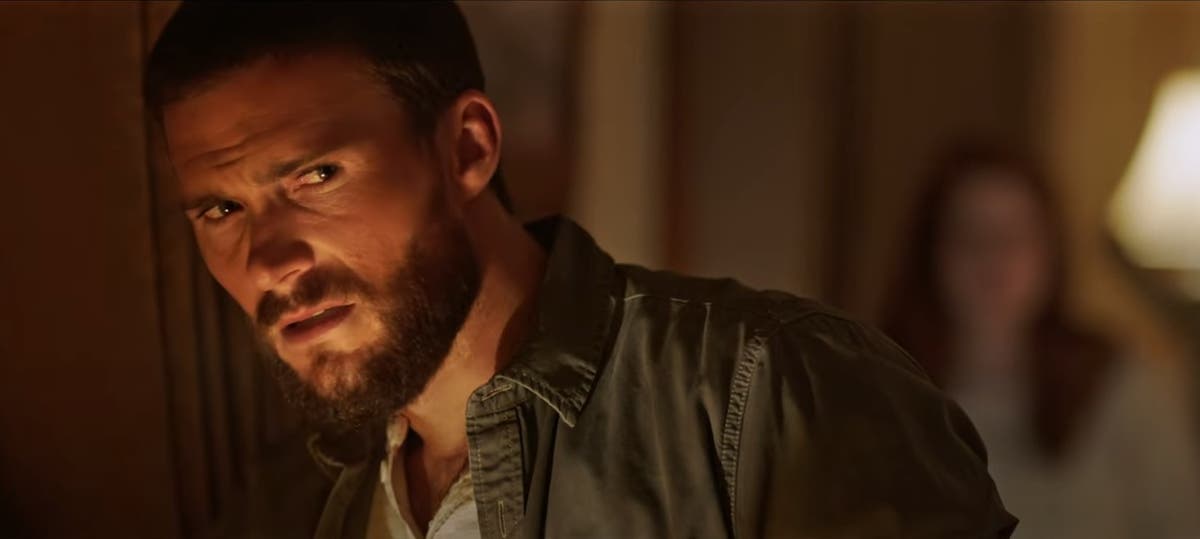Confidential Informant
by Daniel Baldwin
Scenario: You’re an ex-soldier turned cop. You are drowning in debt. You have a terminal medical condition that your benefits won’t properly cover. You’re worried that once your sickness claims you, you’ll leave your family destitute. You know that your job pays out handsomely if you are killed in the line of duty. What do you do?
This is the central hook of Confidential Informant, a crime thriller that also happens to be the first Mel Gibson geezer teaser of 2023. Dominic Purcell and Nick Stahl star as two dirty narcotics officers who magically only use corruption to the “benefit” of society and not themselves. They’ll bust down doors without warrants and conjure up whatever they need to make their reports look clean on the surface in an effort to take down the “bad guys”, but never bend the rules to help themselves out. Their boss (Mel Gibson) willingly turns a blind eye to all of it, again with no personal kickback, all for the good of mankind. Yeah, sure.
Purcell’s narco cop is dying, and he needs a way out that will best help his family. He and Stahl concoct a plan with a close friend/confidential informant (Erik Valdez) of theirs to do just that. Things go haywire, and they end up with an internal affairs investigator (Russell Richardson) on their tail. Can the lie be maintained, or will he discover the truth?
We’ve seen more than a few action thrillers tackle benefits issues for soldiers over the past half dozen years. Films like Den of Thieves, Triple Frontier, Wrath of Man, etc. all showcase how poorly we take care of our troops, leading them – at least in these tales – to lives of crime just to pay the bills. To now do the same for corrupt cops is ballsy, especially in today’s political climate. That’s not to say that it cannot be done, as Joe Carnahan’s brilliant Narc accomplished it two decades ago. This is no Narc.
Confidential Informant wastes a good cast (particularly Kate Bosworth in a beyond thankless wife role) on a mess of a script that tries its hardest to be both a neo-noir and a message film but fails at both. The writing simply isn’t up to the task of juggling these two ideas, so the whole thing buckles under the weight of its own ambitions. Stahl does what he can as the lead and Gibson tries his best in what is actually a small supporting role, but it’s not enough to compensate for a weak script and stiff dialogue. This snooze is for die-hards – sorry, lethal weapons – only.














